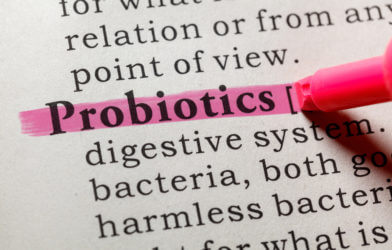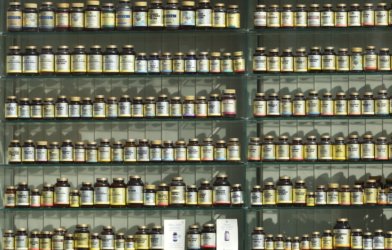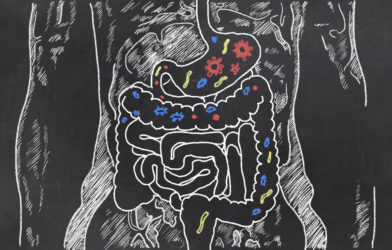That daily protein shake or the eggs you eat for breakfast might be doing more than just fueling your body. A new study delivers a fascinating twist: the type of protein you consume could be actively reshaping the microscopic world inside your gut, potentially affecting your health in ways we’re just beginning to understand.
For years, discussions around protein have focused on how much we need. This research shifts the spotlight to a crucial, often overlooked detail: where that protein comes from. It’s a finding that could help us grasp why some diets seem healthier than others and even shed light on why so many people struggle with gut issues.
As Alfredo Blakeley-Ruiz, a researcher behind the study, put it, “There’s something wrong with what we’re eating today, and we are not close to knowing what that is.” His team wanted to understand “how different diets impact what lives in the gut, and to learn something about what those microbes are doing, functionally, in response to that diet.” Their discoveries remind us that our food choices have complex ripple effects far beyond calorie counts.
How Scientists Studied Protein and Gut Health
To explore this intricate connection between protein and gut health, the researchers set up a careful feeding experiment involving 12 mice. These were laboratory mice, half male and half female, all around three months old. They were housed comfortably, three mice to a cage, to ensure consistent conditions throughout the study.
The scientific team fed these mice a series of nine unique diets, each containing a single, pure protein source. This allowed them to isolate the impact of each protein without interference from other food components. Each diet was given for a week, and then researchers collected samples to see how the mice’s guts had changed. Most diets contained 20% protein, a level chosen because past research indicated significant gut changes often happen around this amount.
The protein sources included common ingredients like soy, casein (a milk protein), brown rice, yeast, pea, and egg white. An attempt was made with a chicken bone protein diet, but it was quickly stopped after only three days because the mice began losing weight. This detail highlights the careful observation involved in the study.
To truly understand the tiny organisms living in the mouse guts, the researchers used a sophisticated technique combining “metagenomics” and “metaproteomics.” Think of it this way: metagenomics identified which bacteria were present, while metaproteomics went a step further, revealing what those bacteria were actually doing by measuring the proteins they produced. This combination offered a deep dive into the active changes happening within the gut’s microbial community. Every result shared in the paper came from these protein measurements, giving a clear picture of what the microbes were up to.
Unexpected Discoveries: Eggs, Rice, and Gut Defenses
The study delivered clear findings: the type of protein in the diet significantly changed both the kinds of microbes living in the gut and what those microbes were doing. As the researchers observed, “the composition of the gut microbiome significantly changed every time we changed the protein source.” Among the proteins tested, brown rice, yeast, and egg whites caused the most noticeable functional shifts.
It was expected that dietary protein would influence how gut bacteria process “amino acids” – the building blocks of proteins. Indeed, the study confirmed that brown rice and egg white proteins led to more enzymes that break down amino acids. This process can create compounds like ammonia, which can be harmful in high amounts. Ammonia-producing enzymes were more common when mice ate brown rice, and also increased with egg white and higher casein diets.
A more surprising and significant finding emerged: dietary protein had a greater impact on the breakdown of complex sugars, known as “glycosylations,” than on amino acid processing. Glycosylations are simply sugar attachments found on proteins. This finding implies that the specific sugar structures on different proteins can strongly influence what gut microbes do. For example, diets featuring yeast and egg white led to an increase in enzymes that break down these complex sugars.
Perhaps the most thought-provoking result involved egg white protein. The study showed that egg white increased the presence of bacteria and proteins linked to the breakdown of the “intestinal mucus barrier.” Consider this barrier as your gut’s protective lining, a vital shield against invaders. When this shield is weakened, it can make the body more susceptible to inflammation and infection. This observation makes sense because egg whites contain their own mucins, a type of protein similar to those found in our gut’s mucus, complete with those crucial sugar attachments. The researchers noted that this connection between the foraging of mucin and egg white protein “in retrospect makes sense.” This particular finding could offer insight into why some population studies have hinted at links between egg consumption and certain health outcomes in people.
Beyond the mucus barrier, the study also revealed other ways protein influences gut microbes. The brown rice diet, for instance, significantly boosted “tryptophanase,” an enzyme that produces indoles. Indoles are signaling molecules that can affect how we feel. Conversely, the egg white diet showed a rise in “glutamate decarboxylase,” which creates GABA, another important signaling molecule. Enzymes that break down “branched-chain amino acids” were also notably higher in the egg white protein diet. These results underscore the complex ways different proteins can steer gut microbial activity, potentially even influencing the communication between our gut and our brain.
Key Takeaways for Your Plate
This study powerfully illustrates that our gut microbiome is highly sensitive to what we eat, and the source of protein is a major factor in these changes. While the research was conducted in mice using purified proteins, the implications are considerable for human health. It prompts us to look beyond simple nutritional labels and consider the detailed makeup of our food, especially our protein sources. Future research will be vital to fully understand how these specific shifts in the gut microbiome, driven by dietary protein, affect human health and the development of gastrointestinal diseases. For now, this study sends a clear message: the protein on your plate might be interacting with your body in ways you never considered, and understanding its origin could be more important than we previously thought.
Paper Summary
Methodology
The study used 12 C57BL/6J mice (half male, half female, 3 months old) fed nine distinct diets, each with a single purified protein source (e.g., soy, egg white) for seven days. Fecal samples were collected. Researchers employed metagenomics and metaproteomics to analyze gut microbial composition and function.
Results
Dietary protein source significantly altered gut microbiota composition and activity. Yeast and egg white proteins notably changed microbial composition, increasing Bacteroides thetaiotaomicron. Brown rice and egg white proteins increased amino acid degrading enzymes. Importantly, dietary protein had a greater effect on the degradation of complex sugars (glycosylations). Egg white protein specifically increased bacteria and proteins linked to intestinal mucus barrier degradation, which could raise susceptibility to inflammation.
Limitations
The study used purified proteins and a single fiber source (cellulose), which differs from typical human diets containing various fats, carbohydrates, and fibers. Therefore, results may not directly translate to real-world human health contexts.
Funding and Disclosures
The research acknowledges contributions from several individuals for advice and support. All mass spectrometry measurements were conducted at the Molecular Education, Technology, and Research Innovation Center (METRIC) at North Carolina State University. Manuel Kleiner secured funding for the study. The article is Open Access under the Creative Commons Attribution License.
Publication Information
The paper, “Dietary protein source alters gut microbiota composition and function,” was authored by J. Alfredo Blakeley-Ruiz et al. It was published in The ISME Journal, Volume 19, Issue 1, article number wraf048, with advance access publication on March 21, 2025. The DOI is https://doi.org/10.1093/ismejo/wraf048.











